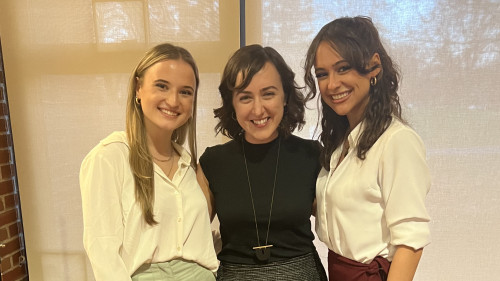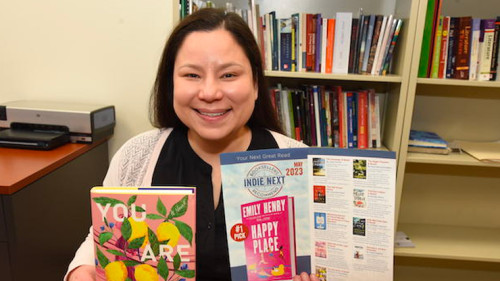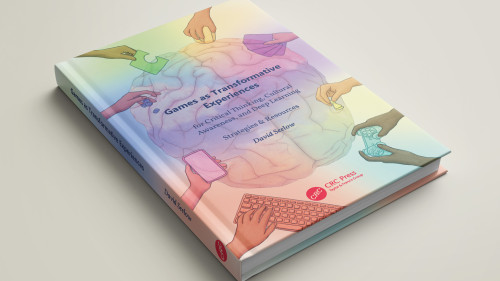

Keep writing and keep submitting your work for publication.
That’s the advice Karin Lin-Greenberg, M.F.A., gives to her creative writing students at Siena. That same persistent attitude and dedication to craft just earned her a spot as a finalist for the Chicago Tribune’s annual Nelson Algren Literary Award for short fiction. Her story, “The Sweeper of Hair” was selected as one of the five best stories out of nearly 4,500 entries.
Lin-Greenberg, who teaches in the English department, says her inspiration for writing can come from anywhere, and the tiny details that make up a day can land in one of her stories to make it ring true to life.
“The Sweeper of Hair” tells the story of nine-year-old Jackson Huang, who spends afternoons at the salon in the near-empty mall where his mother is a hair stylist. A chance encounter in the mall’s food court with a once-famous magician who, because of Parkinson’s, can no longer perform magic tricks leads Jackson to understand the fragility of the human body.
“I looked at the link between the aging body, as seen with the magician and the character of Belinda in the salon, and the crumbling mall with so few tenants left,” she said. “There’s a lifespan for everything and everyone.”
She was also struck by the variety of people who make their way to malls for whatever reason.
“You find people there who wouldn’t interact anywhere else in society.”
Lin-Greenberg is no stranger to literary awards. Her 2014 story collection Faulty Predictions won the Flannery O’Connor Award for Short Fiction and won gold in Foreword Reviews’ INDIES Award in the Short Story category. Her work has been published in literary journals including Boulevard, Colorado Review, New Ohio Review, and Shenandoah.
“The Sweeper of Hair” is the first in what she plans to be a new series of linked stories that could be published individually or as a collection. She’ll be working on this project while on sabbatical for the 2018-19 academic year.
After the writing and revising comes the task of submitting work for publication – the business end of a creative process. Even the best writers have to deal with rejection, and Lin-Greenberg reminds her students (and herself) that patience and persistence are the name of the game when it comes to getting your work into print.
“I try to be honest with them. It takes a long time to learn how to write well, and then many tries to get published. You can submit something 20, 30, 40 times before getting accepted.”
Lin-Greenberg tells her students that being in a writing class is an excellent place to hone their craft and get constructive feedback from other writers.
“Seek out a community of like-minded people and share your work with others.”

